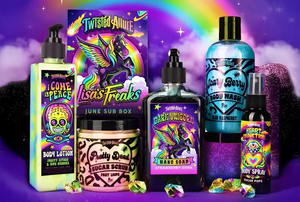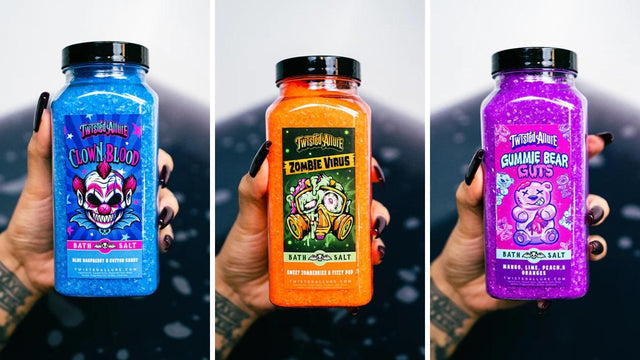
Washing your hands is very important for many reasons. There are many individuals that use liquid soap, bottled soap, bar soap, etc. Making your own hand soap saves you a lot of money and is easy to make. A lot of the ingredients used in homemade hand soaps are very natural and gentle on the skin, especially for individuals with sensitive skin. We will also be discussing the benefits of hand soaps. In today’s blog, we will be going over how to make your own homemade hand soap!
Ingredients For Homemade Hand Soap:
- Water
- Liquid castile soap
- Essential Oils
The ingredients are as simple as that. The essential oil is completely optional. The essential oil gives your hand soap a pleasant scent.
How To Make The Homemade Soaps
- Fill the soap container nearly full of water.
- Add liquid castile soap to the top.
- Place the cap on top of the container.
If you are interested in making this soap foamy, you’ll need a foaming hand soap dispenser.
What Type Of Container Should I Use For My Hand Soap?
You honestly can use any container you want to use. A glass jar is an ideal place for your homemade hand soap. It is good to store your homemade hand soap somewhere you remember to use; for example, you can put it in the bathroom.
What Type Of Castile Soap Should I Use For My Homemade Hand Soap?
You can use any castile soap for your homemade hand soap, including scented Castile hand soap. This is a plus because it adds a nice scent to your homemade hand soap. If you have a fragrance-free soap, you can add essential oils. Here are some scented options for your homemade hand soaps.
- Lavender
- Lemon
- Tea tree oil
- Peppermint
Having tea tree oil and peppermint together makes a very refreshing scent.
KOH vs. NaOH
In making homemade soap, there is chemistry involved. Soap is created through a process called saponification; this means the lye and oils interact in a controlled manner. It is made in a cold environment. You use sodium hydroxide to create hard bars of soap. In liquid soap making, you use a different type of lye called potassium hydroxide, also called caustic potash. Potassium hydroxide makes this sticky Vaseline paste for your homemade hand soap. The mixture in the paste makes the water go into a liquid soap texture.
Water
Water is used in a combination of distilled water and peppermint hydrosol. The hydrosol smells very similar to fresh peppermint leaves, which blend nicely with the essential oils. Peppermint hydrosol will help with moisturizing and uplifting properties. It is also great for refreshing the skin, so it works perfectly in homemade hand soap.
Surfactants
The surfactants applied in homemade hand soap will give the soap the ability to clean your hands and foam up. You can use natural surfactants in your homemade hand soap, such as Coco glucoside and Decyl glucoside.
Coco glucoside
Coco glucoside is totally a natural surfactant that comes from coconuts and sugar. It will provide the soap with the good foaming ability and combines well with Decyl glucoside and other natural surfactants.
Decyl glucoside
Decyl glucoside is very similar to coco glucoside, and it is also a natural ingredient surfactant. It is gentle on the skin, making it a great option for hand soap.
Preservative
The preservative in a recipe is what will keep your lovely homemade hand soap from going gross.
Essential Oils:
Lemon
lemon essential oil helps with germs making it the perfect oil choice for hand soap. It also contains antioxidants and vitamin C, which helps with skin cells that need new skin. As well as this essential oil scent, scent is refreshing and will help to boost your mood into a better feeling.
Peppermint
Peppermint essential oil is naturally cleansing, so it is perfect for your homemade hand soap recipe. Peppermint essential oil also has antiseptic and antibacterial properties, which is another reason it is smart to go with this oil. The peppermint essential oil also makes your homemade soap an ideal choice for individuals that have dry skin. The peppermint essential oil is cooling and soothing to the skin.
Food Coloring
It is honestly up to your preference for the food coloring. It is cool to match the color with the scent. For example, if you have homemade lavender hand soap, you can use purple food coloring to match the scent.
Frequently Asked Questions:
Does Fragrance Impact The Success Of The Soap?
Fragrance can certainly impact the success of soap, as it can affect the perceived quality and appeal of the product to consumers. A pleasant scent can make the soap more desirable to use and can also help to mask any unwanted odors or smells associated with the ingredients used in the soap.
Fragrances used in soap can also provide additional benefits, such as aromatherapy. Scented soaps can be used to relax, uplift moods, provide energy, and many other benefits. Some scents have been found to have a calming effect and are used in soaps for this purpose.
However, it is important to note that not everyone may have the same preference for fragrance, and some individuals may have sensitivities or allergies to certain scents. It's also important to consider that some fragrances in soap can be synthetic and can have negative effects on skin and health. Choosing natural essential oils for fragrance can be a better option for both the product and the customer.
Overall, fragrance can play a role in the success of soap, but it's important to consider the preferences and sensitivities of potential customers and the source of the fragrance.
Most Effective Soaps For Sensitive Skin?
When it comes to soaps for sensitive skin, it's important to look for products that are free from harsh chemicals and irritants. Some effective options for sensitive skin include:
- Unscented and fragrance-free soaps: These soaps are free from any added fragrances, dyes, or colorants, which can often cause irritation for those with sensitive skin.
- Hypoallergenic soaps: These soaps are specifically formulated to minimize the risk of allergic reactions and are gentle on sensitive skin.
- Soaps made with natural ingredients: Soaps made with natural ingredients, such as coconut oil, olive oil, and shea butter, can be less harsh on sensitive skin than those made with synthetic ingredients.
- Mild and gentle soaps: Some soaps are specially formulated to be mild and gentle, making them suitable for sensitive skin.
- pH-balanced soaps: pH-balanced soaps are formulated to be close to the natural pH of the skin, which can help to prevent irritation for those with sensitive skin.
When using essential oils to scent your homemade soap, it's crucial to use pure essential oils from reputable sources and to use them in small amounts. Also, it's essential to patch test before using any new essential oil on the skin, and it's always best to consult with a professional aromatherapist if you have any concerns or doubts.
What Ingredients Is The Best For Making Homemade Hand Soap?
Coconut oil is known for its antibacterial and antimicrobial properties in homemade hand soap. Aloe vera helps soothes irritated skin and moisturize. Essential oils make your hand soap smell great and make your hands clean as well. These ingredients are good to incorporate into your homemade hand soap.
What Oil Makes Homemade Hand Soap Creamy?
There are several oils that can be used to make homemade hand soap creamy; some of the most common ones include:
- Coconut oil: Coconut oil is a popular ingredient in homemade soaps due to its ability to create a creamy lather. It is also moisturizing and can help to nourish the skin.
- Olive oil: Olive oil is another popular oil used in homemade soaps. It is rich in antioxidants and fatty acids, which can help to moisturize and protect the skin.
- Shea butter: Shea butter is a highly moisturizing oil that can be used in homemade soaps to create a creamy lather. It is also rich in vitamins and minerals that can help to nourish the skin.
- Sweet almond oil: Sweet almond oil is a light and non-greasy oil that can be used to make homemade soaps creamy. It is also a great moisturizer and is rich in vitamins and minerals.
- Sunflower oil: Sunflower oil is a light and non-greasy oil that can be used to make homemade soaps creamy. It is also rich in antioxidants and vitamins that can help to nourish the skin.
It's important to note that some oils can be used in a small amount to add extra properties to the soap, and a combination of oils can be used to make a soap creamier. It's important to note that it's not only about the oil but also the proportion of the ingredients, the temperature, and the way the soap is made that will affect the final texture of the soap.
What Is The Important Ingredient In Soap?
The most important ingredient in soap is water. Water is the key essential ingredient to making hand soap. Water is used to make a lye solution, which is combined with oil. The water helps the oil and lye complete the saponification for the hand soap.
Where Do Soaps Need To Be Stored?
Handmade soap should be stored in a cool and dry location. For example you can put your homemade hand soap in a cupboard and linen.



